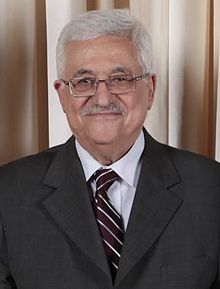The Zionist Organization of America (ZOA) has condemned Palestinian Authority (PA) dictator/president Mahmoud Abbas resorting to the International Criminal Court (ICC) to have Israel investigated for alleged war crimes committed during last year’s Gaza war. The ZOA observes that Israel was indiscriminately assaulted by thousands of rockets fired into its civilian areas from Hamas-controlled Gaza; that Israel took every conceivable measure –– warnings, text messages, dropping leaflets, issuing warnings prior to targeting –– to reduce civilian casualties in Gaza. Hamas, in contrast, continually engaged in genuine war crimes by deliberately targeting Israeli civilians, and hiding and embedding themselves behind Gazan civilians. Further, by internationalizing the conflict and resorting to the ICC, the PA breaches the Oslo Accords, thereby requiring that all U.S. aid to the PA be cut off forthwith.
In a statement today, ZOA National President Morton A. Klein said, “Mahmoud Abbas, the Palestinian Authority dictator, now in the tenth year of his five-year elected term, has breached the Oslo Accords, which requires a negotiated settlement and prohibits unilateral acts and internationalization of the conflict.
“Yet, Abbas, as he unabashedly said in a New York Times op-ed in 2011, ‘Palestine’s admission to the United Nations [to which the PA was since admitted as a non-member state] would pave the way for the internationalization of the conflict as a legal matter, not only a political one. It would also pave the way for us to pursue claims against Israel at the United Nations, human rights treaty bodies and the International Court of Justice.’ Abbas is now doing the same thing with the ICC.
“This fundamental breach of the Oslo Accords demands immediate cessation of all U.S. aid for the PA. The U.S. Congress should demand no less.
“Moreover, the ICC has violated its own statute and international law in permitting ‘Palestine’ to bring this suit and in agreeing to conduct an investigation.”
“As Eugene Kontorovich, Professor at Northwestern University School of Law and an expert on constitutional and international law, has elaborated in the Washington Post, this decision to accept ‘Palestine’ as a state –– a precondition to jurisdiction under the Rome Statute, which created the ICC –– is both absurd and momentous since, “The ICC has never accepted jurisdiction over what is clearly at most a ‘marginal’ state – one that is not a U.N. member, that has not ever claimed to govern any territory, and whose recognition by other states is limited.” (For example, the U.S., Canada, and most Western European states do not recognize the existence of a Palestinian state). This is clearly dramatically different from anything the Court has done before. But the Prosecutor did not actually determine that Palestine qualifies as a ‘state’ under the well-established legal definitions of the term. Rather, she said that the “U.N. General Assembly’s vote in 2012 to call Palestine a ‘non-member state’ is dispositive of the question.” In short, she substituted the determination of the General Assembly for her own. “The GA is not a judicial body, but a political one. Its determinations are political, not legal. (It also has no power under the U.N. Charter, to create or recognize states).”
“Statehood … is a legal term, with legal criteria (‘the Montevideo test’), which involves judgement and the application of law to facts. Of particular relevance is the requirement that to become a state, a territory have a functioning government exercising supreme control in at least part of its claimed territory … The U.N. General Assembly need not be troubled by such legal problems because it is an explicitly political body … For the Prosecutor to take the judgements of such a body on the application of legal terms in the Rome Statute to particular facts as binding upon the Court is to surrender her independence. The Court’s statute, as well as its press releases, demand and proclaim its independence. Yet decisions like this one violate independence, making it a mere organ of the U.N., and of the General Assembly at that …”
“The ICC Statute creates particular powers and duties for the Security Council, and none for the General Assembly. The Council can both initiate and suspend investigations. The Assembly, under the text of the statute, can not do anything. Thus, the Council is an express part of the “ICC system” in a way the Assembly is not. Moreover, the Council’s particular role is quite relevant — it is the only avenue available to the Court to obtain territorial jurisdiction over crimes that do not occur within a territory of a state that has accepted the Court’s jurisdiction. Thus the Security Council would be the obvious route under the ICC statute for creating jurisdiction over a situation like Palestine, where statehood is far from clear …Yet under the Prosecutor’s view, a majority vote in the General Assembly is enough to create jurisdiction for the Court in situations where the Statute otherwise explicitly requires a supermajority in the Security Council. This is a massive, non-textual back-door to jurisdiction.”
